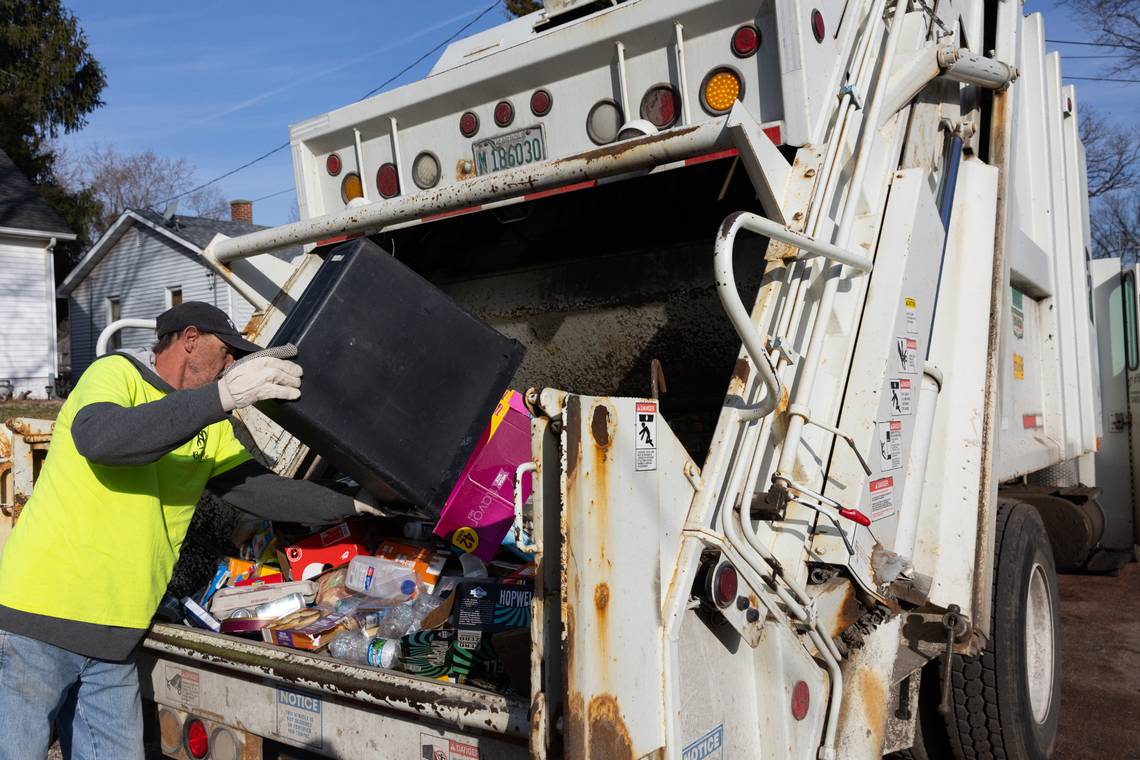Kansas Gov. Laura Kelly last week vetoed a bill which would have prohibited cities and counties from regulating single-use plastic containers just over a month after Lawrence enacted a ban on single-use, disposable plastic bags.
Kelly, a Democrat, agreed with opponents who said the legislation would interfere with local control and violate home rule. Home rule is a provision in the state constitution that empowers local governments to legislate issues relevant to individual communities.
“I believe in local control and that local officials should be held accountable by their constituents, stakeholders, and businesses,” Kelly said in a statement. “This bill lacks sufficient protection to ensure local units of government are able to play a meaningful role in decision making on issues impacting their communities.”
Kelly vetoed similar legislation in 2022, but Republicans didn’t have the two-thirds majority to override her veto. Republicans this year are unlikely to successfully override her veto, falling three votes short in the Senate and 12 votes in the House.
GOP lawmakers have pushed for the bill – backed by the Kansas Chamber of Commerce – for four years in a row, arguing that allowing local municipalities to limit single-use plastics would create patchwork legislation that discourages businesses from moving into Kansas.
Sen. Mike Thompson, a Shawnee Republican who supported the legislation, said the legislation would particularly harm franchise businesses who would have to change their plastic packaging in some areas of Kansas to accommodate local laws.
“It would be absolutely illogical for them to change all their packaging,” he said. “We’re talking about logos and branding and all of that stuff. That’s a huge cost you cannot avoid if someone starts banning those kinds of products.”
Twelve states and over 500 cities have adopted laws to regulate single-use plastics on the local level. Other Republican-led states – such as Florida, Montana, Idaho, Texas and Minnesota – have preemptively banned any regulation on single-use plastics.
Opponents say that since many municipalities already restrict single-use plastics, a patchwork is already there, businesses are already prepared to switch to alternative packaging. And they say barring local governments from regulating plastics not only would violate home rule, but would carry serious environmental and economic consequences due to increased plastic pollution.
Sen. Cindy Holscher, an Overland Park Democrat, said there is a significant cost when cleaning up plastic bags which do not decompose. They can jam equipment, flood landfills and are costly to clean up, she said.
“This bill does nothing positive to address the bigger issue of plastic pollution in Kansas,” she said during a House floor debate last month.
Kelly last week also vetoed a measure that would have exempted sugaring – a method of temporary hair removal using a paste made from sugar, lemon and water to pull hair out of follicles – from the definition of cosmetology. The legislation would eliminate the requirement for an individual practicing sugaring to obtain a cosmetology license.
Kelly, agreeing with opponents, said that deregulating sugaring could lead to safety and sanitation problems, and was concerned that people without licenses could perform the procedure on minors. Requiring people performing sugaring to obtain a license, she said, would ensure professionals are operating safely.
“We have a responsibility to protect Kansans – and this deregulation would threaten the health and safety of Kansans – particularly our children,” Kelly said in a statement.
Kelly continued: “Under the purview of the Kansas Board of Cosmetology, sugaring practitioners are required to adhere to the same health and safety standards as other cosmetologists and estheticians. They are subject to criminal background checks and training prior to the successful completion of exams to earn state licensure.
“Deregulating sugaring risks contamination, improper infection control, and potential safety issues involving minors. I am not willing to undermine the Kansas Board of Cosmetology’s expertise or threaten the long-term health and safety of Kansans who receive sugaring services.”
The bill passed almost unanimously in the Senate 38-1, going beyond the two-thirds majority needed to override Kelly’s veto. But the House came up 13 votes short of the veto-proof majority, meaning lawmakers are unlikely to override Kelly’s veto.
Proponents argued that people who want to practice sugaring should not have to go through the required 1,500 hours of training to obtain a license. They say deregulating the practice could reap benefits for marginalized groups that want to open businesses.
Sam MacRoberts, a lobbyist for the Kansas Justice Institute, an organization that fights against government overreach, said the bill would promote economic freedom and business growth by eliminating “nonsensical” requirements to perform sugaring.
“This bill will remove a needless, unreasonable, and burdensome occupational licensing requirement for a grooming technique that is already safe,” he said. “Occupational licensing significantly— and disproportionally—burdens racial minorities and economically disadvantaged groups as well.”
Kelly last week vetoed a total of six bills, including one placing additional parameters abortion access, banning hormone therapy and gender reassignment surgery for transgender minors. She allowed one bill requiring age-verification to enter adult websites to become law without her signature, citing concerns about its vague language.
